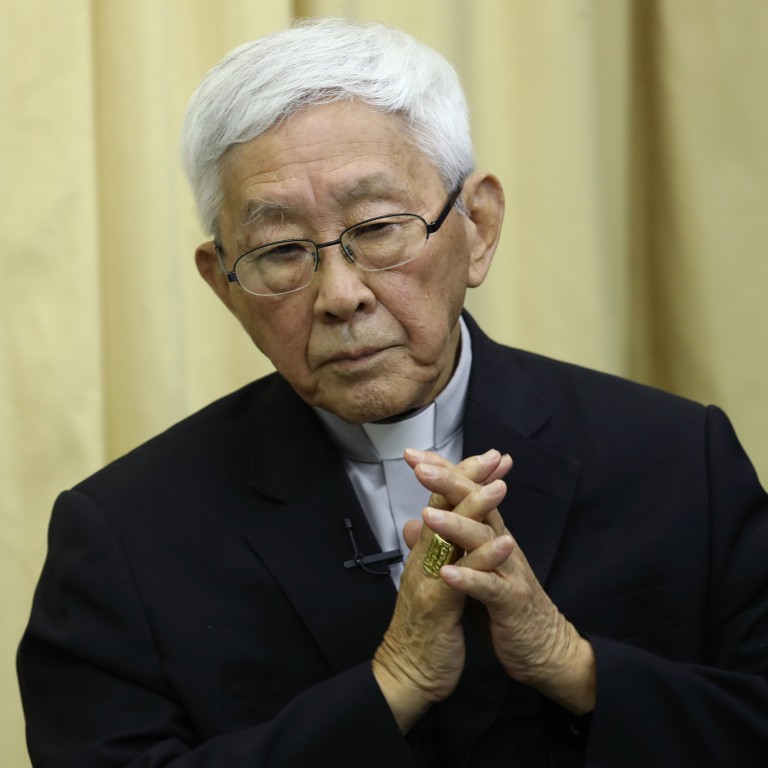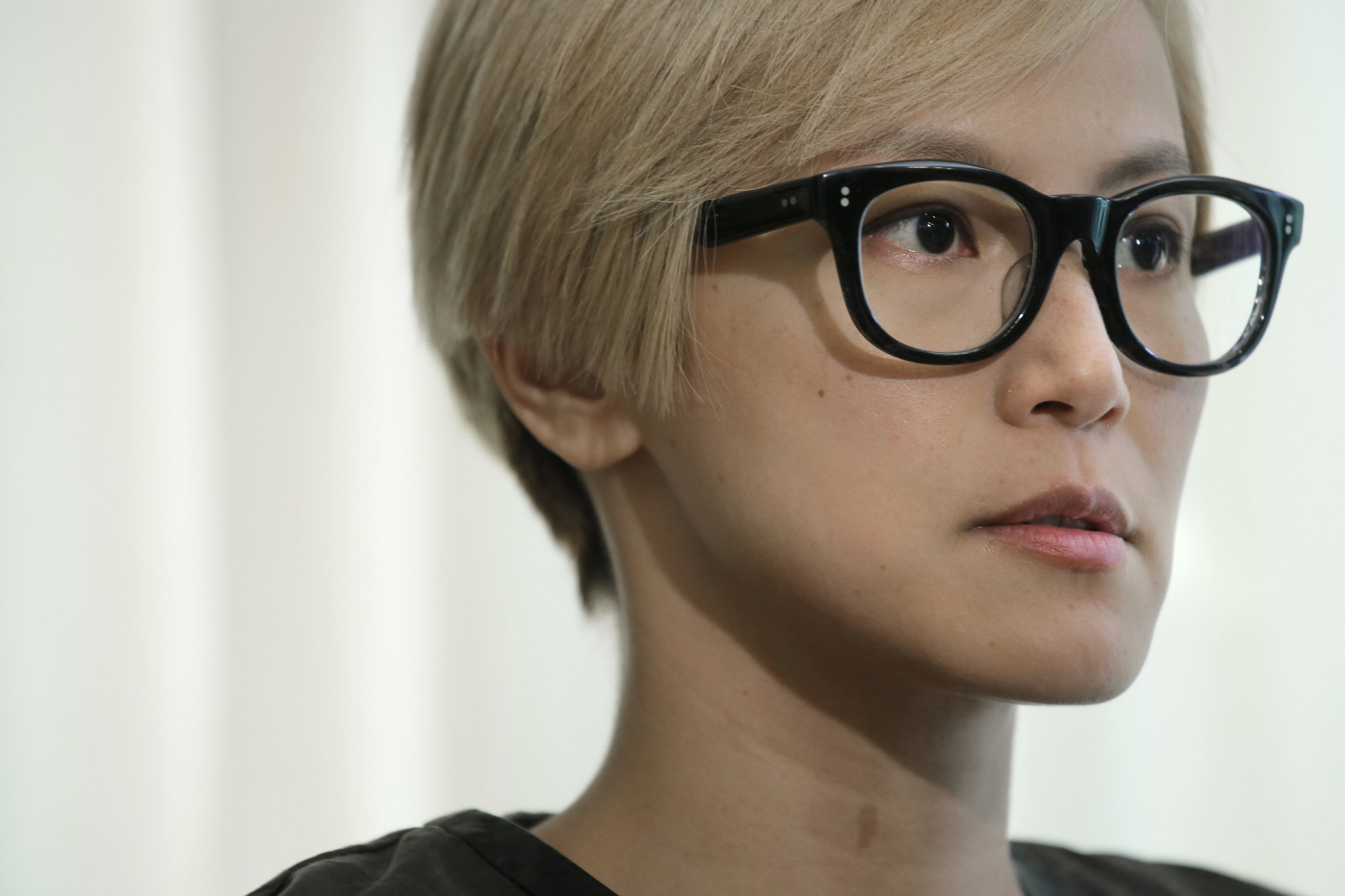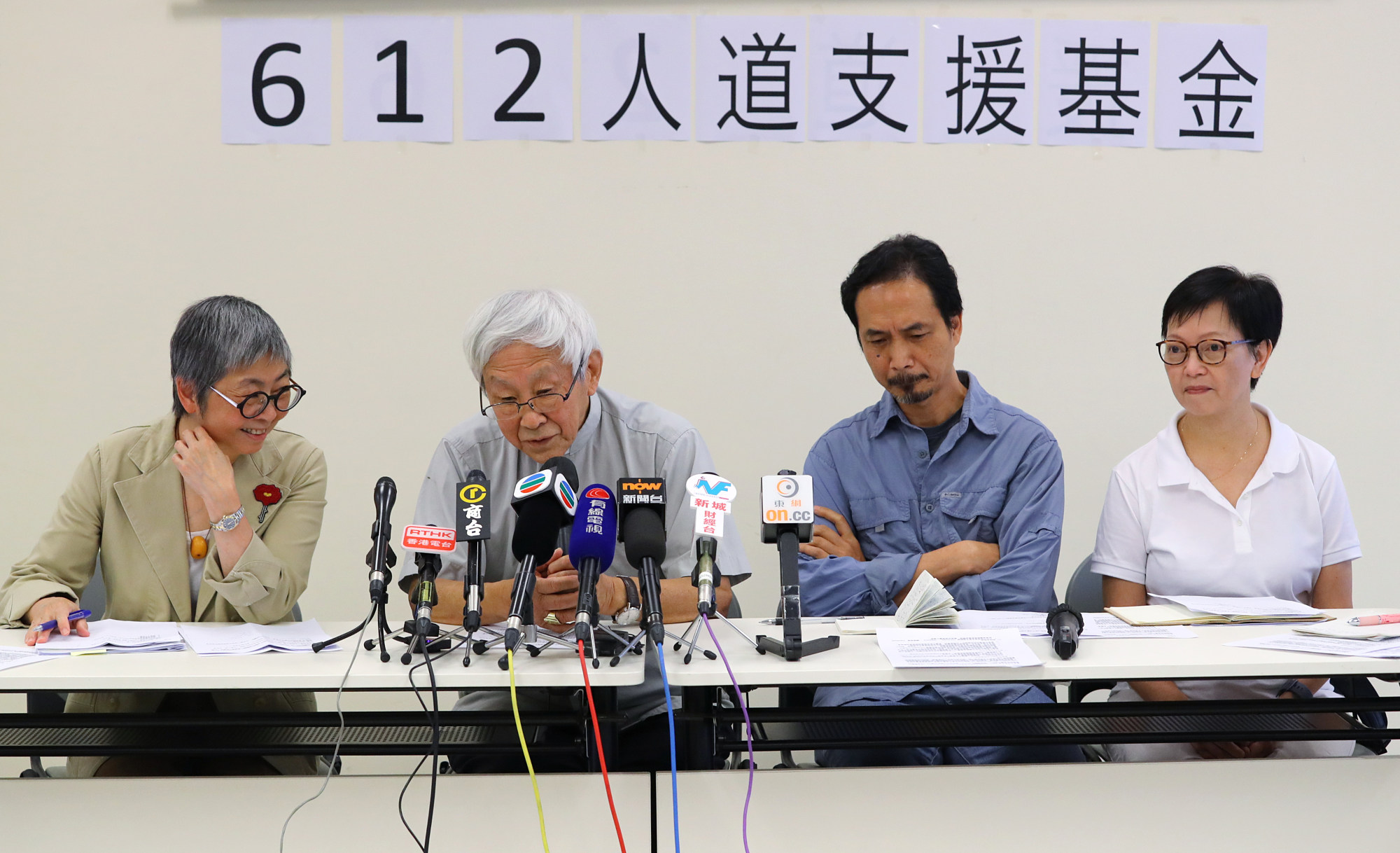
National security law: arrest of Hong Kong’s Cardinal Joseph Zen sparks concerns of wider net cast over religious institutions
- Analysts say move does little to promote social cohesion, but decision also appears to be political rather than aimed at religion
- The 90-year-old cardinal was detained on Wednesday night along with two other opposition figures for allegedly colluding with foreign forces
National security police detained the 90-year-old cardinal on Wednesday night, along with former opposition lawmaker Margaret Ng Ngoi-yee and singer Denise Ho Wan-sze, for allegedly colluding with foreign forces.
Analysts questioned if such severe action was needed, arguing it would deal an emotional blow to religious groups and the public image of the government, while other observers said the move was centred more on politics than religion.
Fund facing foreign collusion probe to ‘stop receiving donations’
Zen, Ng and Ho, as well as Hui Po-keung, a former Lingnan University academic who was arrested on Tuesday, were trustees of the now-defunct 612 Humanitarian Relief Fund, which was set up to help those involved in anti-government protests of 2019 and came under intense scrutiny from authorities over the past year. The four have been released on bail.
The remaining trustee of the fund, Cyd Ho Sau-lan, is already in jail for her role in illegal assemblies.

Zen, a retired bishop of the Hong Kong Catholic diocese, has been a long-time advocate for the city’s democracy movement as well as religious freedom in mainland China.
He also remains one of the fiercest critics of Pope Francis over what is seen as the Vatican’s attempts to forge closer ties with Beijing in the run-up to the renewal of a controversial 2018 agreement on the appointment of Bishops in China, at the cost of sacrificing the independence of the underground Catholic community in the mainland.
The Vatican released a statement on Wednesday, saying it was closely monitoring Zen’s arrest. The US and EU governments condemned all of the detentions.
“The Holy See has learned with concern the news of the arrest of Cardinal Zen and is following the development of the situation with extreme attention,” the statement read.

Hong Kong’s 400,000-plus Catholic community remains deeply divided politically, with some church members playing active roles in the city’s pro-democracy movement. After Beijing imposed the national security law on Hong Kong in June 2020, some religious groups voiced fears they could be accused of colluding with foreign forces.
While the Holy See’s press office has expressed concerns over Zen’s arrest, the Hong Kong diocese has yet to issue a response, saying it needed more time to look into the matter.
Security police eye foreign collusion case against Hong Kong protests fund
Anthony Lam Sui-ki, a Catholic affairs expert with Hong Kong Shue Yan University’s journalism and communication department, said he was shocked and saddened to learn of Zen’s arrest.
“I am sure there must be legal reasons for the authorities to take such action but I’m indeed very shocked to learn that the 90-year-old cardinal has to undergo such an ordeal, especially after the low profile he has kept in recent years following the end of the protests,” Lam said.
“There are many ways to solve the problems but I did not expect authorities to take such a high-profile approach. I don’t think this is helpful in securing harmonious cooperation from different parts of society.
“At this point, the attention has been diverted to Zen rather than the crux of the issue and this might not work in favour of the Hong Kong government from a public relations context,” Lam warned.
Hong Kong authorities accuse overseas NGO of breaching national security law
Lawrence Reardon, associate professor of political science at the University of New Hampshire, said the arrest raised the question of whether the Hong Kong government would prosecute other religious figures and organisations supportive of the pro-democracy movement.
“I wonder if they will expand the investigation and start going after religious institutions, especially those with ‘foreign religions’,” Reardon said.
“As ‘princes of the church’, Catholic cardinals are key advisers to the Pope, run its ministries around the world, and even choose the Pope’s successor. Cardinals thus are not only religious but political figures,” he added.
A Catholic cardinal has an advisory role to the Pope and remains a lifelong appointment. Those under 80 can vote for a new pontiff during a papal conclave.
Hongkongers with ties to US-backed group could risk censure, analysts warn
Zen and former bishop John Tong Hon, both Hong Kong-based, are the only two living cardinals left in the Greater China region. This is the first time a Catholic cardinal has been arrested on Chinese soil after religious freedom was gradually restored following a sweeping ban during the Cultural Revolution.
Reverend Professor Lo Lung-kwong, former general secretary of the Hong Kong Christian Council and former president of the Methodist Church, said the arrest of such a veteran Catholic leader cast a heavy emotional and mental toll on supporters of Zen and pro-democracy values.
He said, however, that the arrest appeared to be a “political move rather than religiously motivated” and therefore would unlikely threaten the rights of the city’s faithful to openly worship.
“A cardinal is more of a political figure than a religious figure. I am inclined to see that his arrest has nothing to do with religious persecution,” Lo said.

